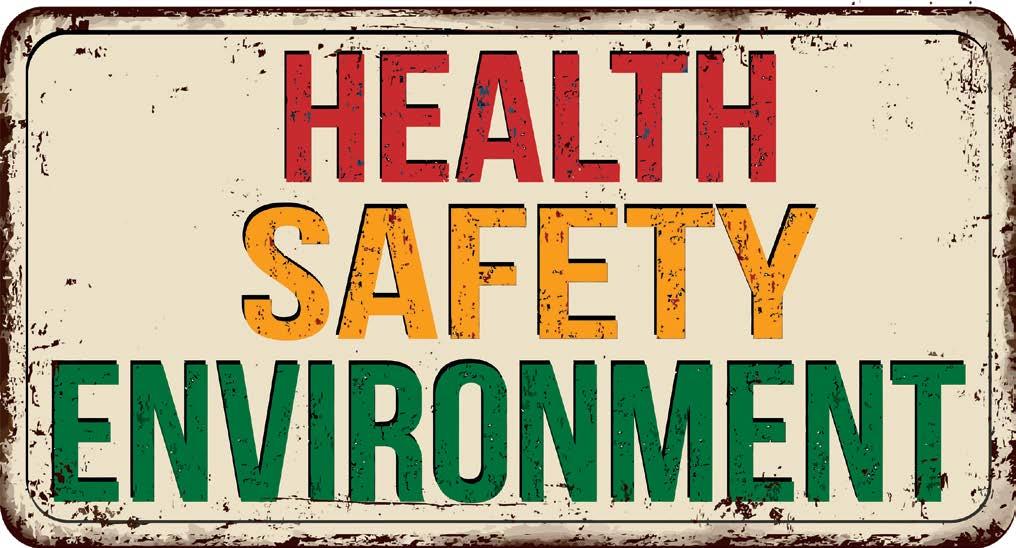3 minute read
EMPLOYMENT MATTERS AND SALARY PAYMENT
from Staff handbook 2023
by Tapojärvi Oy
Next Article
THE FINNISH CONSTRUCTION TRADE UNION AND INFRA RY ARE NEGOTIATING A GENERALLY BINDING COLLECTIVE AGREEMENT FOR CONSTRUCTION INDUSTRIES, APPLICABLE ALL CONSTRUCTION WORK.
TAPOJÄRVI OY APPLIES THE COLLECTIVE AGREEMENT FOR THE INFRASTRUCTURE INDUSTRY TO WORKERS AND THE COLLECTIVE AGREEMENT FOR SALARIED EMPLOYEES IN THE CONSTRUCTION SECTOR TO OFFICE WORKERS.
Payslips are send electronically to the employee’s online bank. The electronic payslip service can be accessed behind the SD Worx link.
Absences
If you fall ill, notify your direct supervisor by calling them as soon as possible but no later than before the start of your next shift. You need a medical certificate issued by the company’s occupational health physician or other medical certificate accepted by the employer.
Hourly Pay Monthly Pay
The pay is paid twice a month: on the 7th and 22nd of the month. The pay from days 1 to 15 is paid on the 22nd of the same month and from the 16th to the last day of the month on the 7th of the following month.
The pay is paid once a month on the 23rd of the month.
IF THE PAYDAY FALLS ON A HOLIDAY OR WEEKEND, THE PAYMENT IS MADE ON THE PREVIOUS WORKING DAY.
Working Hours
The start and finish times as well as breaks are determined by the nature of the work.
The employer monitors the working hours.
If you are absent for no longer than three days, notifying the employer of your absence is enough (establishment-level agreement).
This rule only applies to absences of no more than three days. For longer sickness absences, you are required to provide a sickness certificate. You must notify your supervisor separately for each day of absence by calling them before the start of your shift. You must explain the reason for your absence. You can be absent from work on your own notice 3 times/rolling 12 months.
The employer’s occupational health services must be used primarily. The sickness certificate must be delivered to the supervisor or payroll department immediately. If no certificate is received, the sick leave is considered to be a regular absence, i.e. unpaid leave. You must also notify the employer of any known upcoming sick leave in advance.
Sickness Absences Sick Pay
The sick pay will be paid in accordance with the collective agreement, taking into account the duration of the employment relationship. If you have been employed for less than one month, no sick pay will be paid.
If you have been employed for less than six months, no sick pay will be paid for the first day of sick leave. For longer sick leaves, you will receive a request for clarification from KELA by post. Fill in and submit the form to KELA within the time limit. Otherwise, the employer may deduct the sick pay paid to you.
Sick Child
In the event of a child under 10 falling ill, only one parent is entitled to sick pay for a short, temporary absence. The conditions for receiving the compensation are that both parents must have a paid job and the employer must be provided with an appropriate clarification entitling the employee to sick pay for their absence (medical certificate) and a statement of their spouse’s employment. The notice policy also applies in this situation.
IF YOU ARE PREVENTED FROM COMING TO WORK, YOU MUST CALL YOUR DIRECT SUPERVISOR IMMEDIATELY. YOU ARE REQUIRED TO EXPLAIN THE REASON FOR YOUR ABSENCE.

AGREEMENT ON LIGHT-DUTY WORK
Light-duty work refers to a situation where an employee who has fallen ill is no longer able to perform their regular duties but can do lighter work. Instead of taking sick leave, the employee can be assigned new, lighter duties or participate in training. Light-duty work can be suggested by either the employee or the employer. If necessary, a physician or occupational health care will ensure that the light-duty work does not worsen the employee’s condition or hinder their recovery. The assignment of light-duty work may be considered if the employee wishes to work during their sick leave. The statutory accident insurance policy shall apply to light-duty work.

Early Intervention
Tapojärvi has prepared guidelines for monitoring sickness absences in relation to work ability management and early intervention. Supervisors have the right and duty to intervene if they detect signs of a deteriorating work ability in their employees. An appropriate and timely intervention enables the initiation of measures to recover one’s functional ability and reduce the number of sickness absences. There are thresholds for intervention in the event of long or prolonged sickness absences or repeated short absences. When the set number of absences is exceeded, the situation will be discussed with the employee according to the early intervention model. If necessary, occupational health services may be consulted. Occupational health services focus on the early prevention of symptoms and diseases, support of work ability, and detection of signs of a deteriorating work ability.








